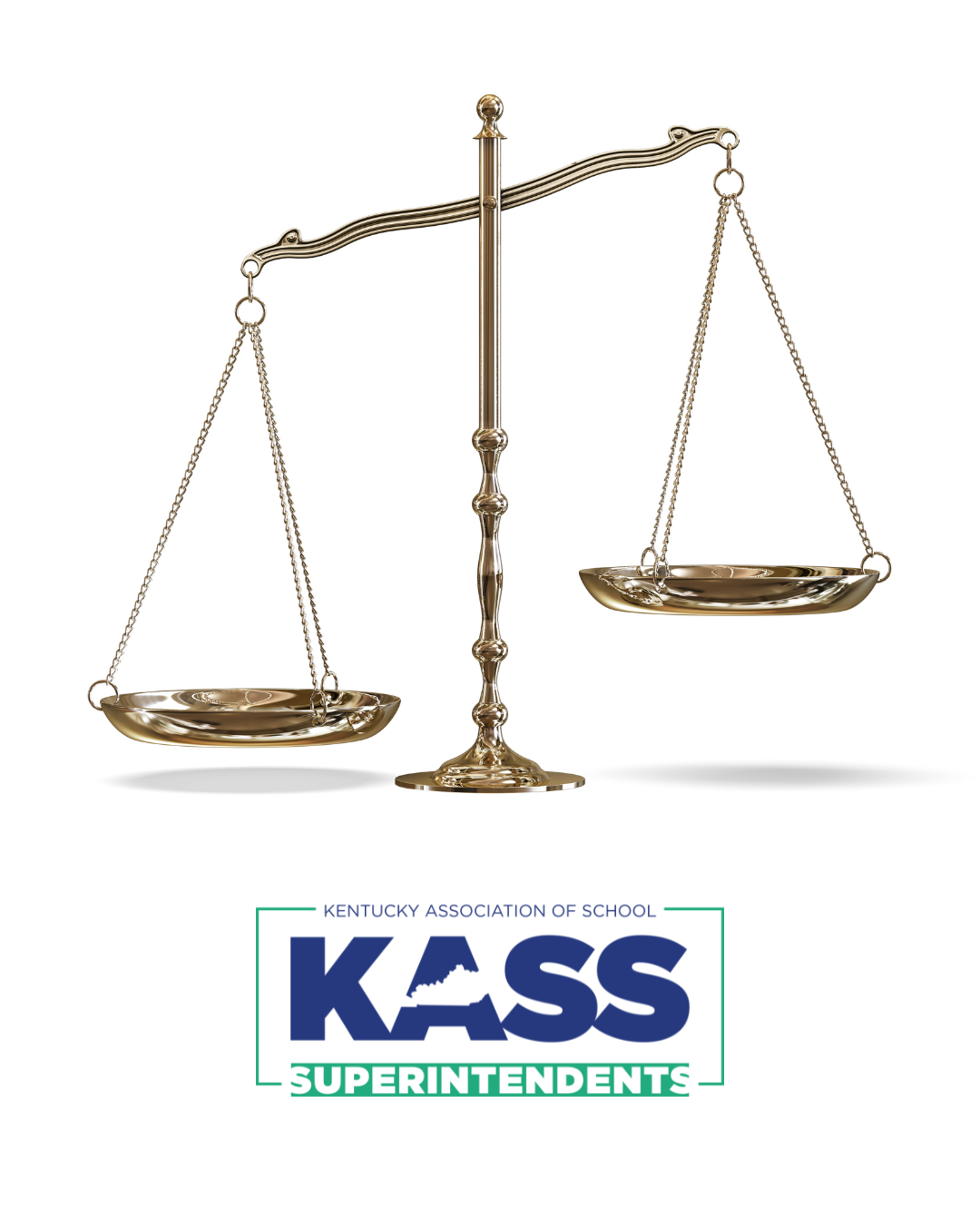Measuring What Matters for the CommonWealth of all Students
February 14, 2025
Measuring What Matters for the CommonWealth of all Students

Kentucky’s public schools are filled with potential, but our current system of accountability does not fully capture the breadth of student learning and success. At the Kentucky Association of School Superintendents (KASS), we believe it’s time to rethink how we measure student progress and school effectiveness. The current system, overly reliant on single-test measures and largely based on federal and state standards, fails to paint a complete picture of what’s happening inside Kentucky’s classrooms. It’s time for a change—one that puts students first, fosters innovation, and supports educators in meaningful ways.
The promise of the Kentucky Education Reform Act (KERA) was remarkable, outlining capacities to ensure that students possessed the knowledge, skills, and dispositions across a whole host of areas to be successful in life. Initially, the KIRIS system sought to measure these capacities in very forward thinking ways. Unfortunately, the advent of No Child Left Behind and other factors has left Kentucky’s accountability framework largely defined by standardized test scores. While assessments play a role in measuring student achievement, they often fail to capture the full learning experience. Schools and districts should not be evaluated solely based on a one-size-fits-all approach. Instead, accountability should be flexible, allowing communities to emphasize the values that matter most to them while maintaining high standards. Kentucky is a complex and diverse place - our accountability system should reflect that.
Some of the key concerns with the current system include:
- Limited Measures of Success: A single test score cannot fully represent a student’s knowledge, skills, or growth over time. Can a science teacher make instructional decisions when a student takes a singular test one time every 3 years?
- Lack of Real-Time Feedback: Many assessments do not provide timely or useful feedback to students or teachers, making it difficult to adjust instruction effectively. Students take these assessments in May and it’s September before any relevant data is available.
- Overburdening Educators: Kentucky has exceeded federal testing requirements, adding layers of bureaucracy that do not necessarily improve student learning outcomes.
A more effective system would provide school districts with greater flexibility while maintaining high standards for all students. By shifting toward an accountability model that prioritizes growth and multiple measures of success, we can create a system that truly reflects student learning and progress.
Aligning Accountability with Workforce Readiness
As noted in the Prichard Committee’s recent article, “Making Kentucky High School Diplomas Matter,” employers are looking for graduates who can think critically, communicate clearly, and adapt to new challenges. Thirty five years ago, these were similar skills that KERA promised Kentucky students. These skills are not captured by traditional test-based metrics, but they are cultivated through personalized and innovative educational approaches.
School districts across Kentucky have developed a Portrait of a Learner/Graduate that represents a transformational approach to education. Instead of focusing solely on standardized test scores, this framework emphasizes the development of durable skills such as:
- Critical thinking
- Collaboration
- Communication
- Creativity
- Adaptability
Employers consistently identify these competencies as essential for success in today’s rapidly evolving job market. A graduate who can adapt to challenges, communicate effectively, and work collaboratively is far more prepared to contribute meaningfully to their community and the workforce than one whose education was defined solely by test scores.
The Vision for a New Accountability Framework
Kentucky’s United We Learn Initiative presents a unique opportunity to rethink how we assess student success. This framework balances traditional education priorities around reading, math, transition readiness, and graduation rates with a local component that’s more agile when the local context changes. By designing an accountability system that aligns with these values, we can ensure that education in Kentucky is meaningful and impactful.
A more effective system would:
- Prioritize Student Growth: Rather than comparing one group of students to a different group of students, we should measure student learning progress over time.
- Offer Multiple Ways to Demonstrate Learning: Students should be able to show proficiency in various ways, such as projects, presentations, and portfolio assessments, rather than relying solely on standardized tests.
- Reduce Unnecessary Mandates: Schools should be free from excessive testing requirements that do not add value to the learning experience.
- Embed Workforce-Ready Skills: Ensure accountability includes measures for critical thinking, collaboration, and adaptability to align with employer expectations.
This shift will not only benefit students but also support teachers by fostering a culture of innovation and adaptability in the classroom.
Accountability That Works for Everyone
A well-designed accountability system benefits both students and educators. For students, it means access to diverse learning opportunities and assessments that truly reflect their strengths and abilities. For teachers, it means a system that values their work and encourages creativity in instruction.
By moving beyond test-driven accountability, Kentucky can:
- Provide a more accurate representation of student achievement.
- Help recruit and retain passionate educators by creating a system that supports and empowers them.
- Foster community-driven education, ensuring that schools align with local values and needs.
- Strengthen workforce connections, ensuring graduates are prepared for meaningful careers.
The future of Kentucky’s education system depends on our willingness to embrace change. By advocating for a new, more effective accountability system, we can ensure that every student has the opportunity to succeed in a way that reflects their unique strengths and potential.
Legislative leaders and education policymakers must work together to develop an accountability system that puts students first and supports educators.
Kentucky’s children deserve an education system that measures what truly matters. Let’s work together to build a brighter future for all students.

In a recent KASS Live episode, KHSAA Commissioner Julian Tackett addressed the growing complexity surrounding high school athletics in Kentucky. From transfer eligibility under open enrollment to NIL guardrails and mid-season movement, the pressures facing districts are increasingly operational and immediate. Tackett emphasized that the KHSAA’s responsibility is consistent rule application grounded in member-approved policy, while superintendents remain central to maintaining fairness, clarity, and community trust when eligibility questions arise. The conversation also underscored the importance of safety, supervision, and partnership. Whether addressing fan conduct, officiating shortages, or compliance concerns, athletics reflect district leadership and school culture. With clear communication and steady collaboration between districts and the KHSAA, superintendents can protect student opportunity while preserving competitive integrity and public confidence. 👉 Watch the full conversation with Julian Tackett

When education funding debates move into budget season, conversations often revolve around line items, percentages, and projections. For district superintendents, however, the implications are far more tangible. They are measured in teacher salaries, bus replacement schedules, classroom resources, and student services. This session’s budget conversation centers heavily on recurring revenue through the SEEK formula. While multiple targeted investments are under discussion, the clearest message emerging is the importance of the SEEK base and its connection to district stability. Why the SEEK Base Matters The SEEK base is not simply a number in statute. It is the primary recurring funding mechanism that districts rely on for sustainable planning. When the base increases meaningfully, districts gain the ability to invest in instruction, remain competitive in staff compensation, and address long-term workforce challenges. When it remains flat, the pressure shifts locally. Over time, districts have experienced diminished buying power relative to 2008 levels. Inflationary pressures and rising operational costs continue to compound that challenge. Without recurring revenue growth, districts absorb those increases within fixed budgets. The result is not theoretical. It is operational. A Local Example: Rockcastle County Schools A funding impact report shared this week illustrates how these pressures manifest at the district level . On page 1 of the report, Rockcastle County Schools documents a 26 percent decrease in purchasing power compared to 2008. Bus replacement costs increased significantly, with a single bus rising from $97,115 in 2021 to $154,702 in 2026. The district will purchase four buses at a total cost of $618,808. Insurance costs tell a similar story. General and property insurance increased from $168,977 in 2020 to $467,555 in 2025 . Instructional curriculum now totals $1.2 million annually, and even a limited Chromebook replacement cycle at select grade 0 levels requires $300,000 plus additional charger Y . These are not optional expenses. They are core operational realities. Transportation and Instructional Tradeoffs On page 3 of the same report, Rockcastle details the transportation impact specifically . Fully funding SEEK transportation using prior-year spring data would provide $413,906, nearly funding three of the four buses needed for the upcoming year. Over a ten-year period, the district estimates a $7,040,240 deficit resulting from transportation not being fully funded . When transportation funding falls short, districts must redirect general fund dollars to close the gap. That shift carries instructional consequences: delayed salary adjustments, postponed program investments, and limited capacity to address workforce shortages. Superintendents presenting to budget committees emphasized this dynamic clearly. One district reported being funded at roughly 74 percent of actual transportation cost, requiring approximately $900,000 to be covered locally. The instructional opportunity cost of that gap is real. Tier I and Geographic Equity The third recurring revenue lever under discussion is Tier I equalization. An increase from 17.5 percent toward 20 percent has been referenced as a way to strengthen equity across districts with varying property wealth. As described in the Rockcastle report on page 4 , recurring SEEK funding supports: Expanded mental health services Special education and intervention staffing School resource officers Student services such as counseling and food access Cost-of-living salary increases Rising instructional programming costs These needs do not fluctuate annually. They are ongoing, and they require stable funding. The Power of Telling the Story The most effective advocacy this week did not rely on abstract percentages. It relied on district-level numbers and clearly articulated tradeoffs. Transportation funded at 71 to 74 percent. Four buses costing over $600,000. Insurance increases of nearly $300,000 in five years. A decade-long transportation deficit exceeding $7 million. These details shift the conversation from policy theory to district consequence. Legislators consistently respond to local impact framed through data and student outcomes. When superintendents connect SEEK base increases to competitive salaries, to workforce retention along border states, to expanded mental health supports, the budget conversation becomes grounded in operational reality. Recurring Revenue Is the Stability Strategy Targeted investments have value. School safety, induction programs, and principal mentoring initiatives all matter. But recurring revenue remains the foundation. The SEEK base, fully funded transportation using current data, and equitable Tier I adjustments represent structural stability. They allow districts to plan beyond a single fiscal year. They protect classroom resources from operational volatility. They restore balance between state and local funding responsibility. At the center of this discussion is not a formula. It is stewardship. District leaders are tasked with protecting instructional quality, sustaining safe environments, and maintaining public trust. Recurring revenue allows them to do that with foresight rather than reaction. Moving Forward Budget negotiations will continue to evolve. Early signals suggest interest in raising the SEEK base and improving transportation funding. Final outcomes will depend on continued engagement and clear communication from district leaders. The most effective approach remains consistent: Present the numbers. Connect them to instruction. Explain the consequence of inaction. Reinforce the long-term return on investment. As the Rockcastle report concludes, the return on investment is not abstract. It is the future leaders of Kentucky communities . In this budget cycle, the SEEK base is more than a funding mechanism. It is the clearest signal of the Commonwealth’s commitment to sustaining strong, stable, and future-ready public schools.

In the KASS Live session with John Nash, superintendents were invited into a nuanced discussion about how generative AI is shaping the educational landscape and what it means for district leadership. Nash, Associate Professor of Educational Leadership Studies at the University of Kentucky and founding director of the Laboratory on Design Thinking, offered a grounded framework for understanding AI beyond hype and anxiety. He emphasized that the integration of AI should be deliberate, anchored in clear leadership goals and centered on supporting educators and learners rather than replacing essential human judgment. Throughout the conversation, Nash connected the promise of emerging technologies with enduring leadership principles — trust, reflection, and purpose. Rather than presenting AI as a side project or compliance task, he encouraged superintendents to consider how these tools might support problem-solving, instructional innovation, and operational clarity across their districts. His perspective reminded leaders that the essence of their role remains unchanged even as the tools evolve: guide people toward meaningful outcomes and keep students at the center of every decision. 👉 Watch the full conversation with John Nash

In this KASS Live episode, Beau Barnes — Deputy Executive Secretary of Operations and General Counsel for the Teachers’ Retirement System of Kentucky (TRS) — brought superintendents into a frank conversation about the health and future of the statewide retirement system that supports Kentucky’s educators. Barnes discussed the role of sustained investment, governance integrity, and transparent communication in ensuring that TRS remains a stable and dependable benefit for teachers and administrators alike. His insights underscored that secure and well-governed retirement systems are essential to recruiting and retaining high-quality staff across districts. Barnes also highlighted how reforms and strategic planning within TRS intersect with broader district priorities, from workforce stability to long-range financial forecasting. His discussion aimed to demystify complex pension topics and frame them in terms that district leaders can incorporate into their planning conversations. Rather than an abstract financial challenge, TRS became a lens through which superintendents could examine how retirement policy and operational decisions affect district morale, long-term hiring strategies, and community confidence in public education as a career pathway. 👉 Watch the full conversation with Beau Barnes: https://www.youtube.com/watch?v=0VgqkixoaAU&list=PL-5C6cZuwEFLtZQLLGV_A3n__fBWYWk6V&index=2

Representative Scott Lewis brought his perspective as both a former superintendent and current legislator to KASS Live, offering a forward-looking conversation on policy priorities shaping Kentucky’s public schools. Lewis discussed the importance of bipartisan efforts to refine the state’s accountability systems, strengthen the educator workforce, and reduce unnecessary regulatory burdens that can pull districts away from core instructional work. His insights blended legislative context with operational realities that superintendents face, bridging the gap between policy debate in Frankfort and decision-making in district offices. Throughout the session, Lewis emphasized that targeted investments — including support for classroom resources, workforce development, and pension stability — are essential to sustaining momentum in student achievement and operational excellence. He encouraged leaders to engage thoughtfully with lawmakers and framed collaboration as a strategic tool for advancing initiatives that align with district priorities. His conversation reinforced that legislative outcomes matter not just for compliance, but for their cumulative impact on student opportunities, district capacity, and community trust in public education. 👉 Watch the full conversation with Representative Scott Lewis: https://www.youtube.com/watch?v=WLcbk4AnClI



